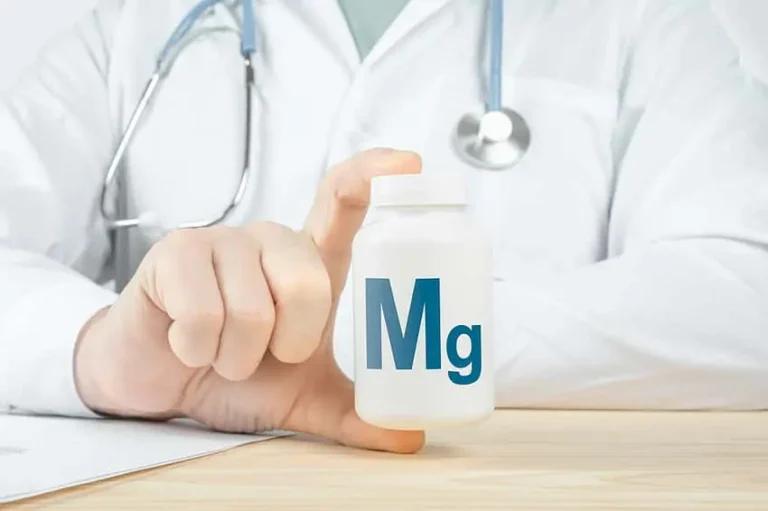
In the search for a night of better sleep, many people turn to sleep aids to help them drift off into dreamland. Two popular options that often come up in conversations are magnesium and melatonin. These supplements have gained attention for their potential sleep-enhancing properties. What are the benefits of magnesium and melatonin? In this article, we will delve into the world of sleep aids and explore the differences between magnesium and melatonin.
Understanding magnesium
Magnesium is a vital nutrient that plays a crucial role in various bodily functions. It regulates muscle contraction/nerve function, maintains blood sugar/blood pressure levels, and contributes to the production of proteins, bones, and DNA. This essential mineral can be found in foods like legumes, leafy greens, seeds/nuts (e.g. pumpkin seeds, almonds and cashews) and whole grains.
When it comes to good sleep, magnesium has been the subject of much interest. It is believed to have a calming effect on the body and activate the parasympathetic nervous system, which is responsible for promoting relaxation. It helps the body maintain levels of GABA (gamma-aminobutyric acid), a neurotransmitter that is responsible for “turning off” wakefulness. A 2016 study on the effects of magnesium even found that magnesium supplements (magnesium glycinate) could reduce stress levels and potentially aid in sleep disorders and restlessness.
Decoding melatonin
Melatonin, on the other hand, is a hormone naturally produced by the pineal gland in the brain. It plays a vital role in regulating the sleep-wake cycle. Melatonin levels typically rise in the evening, signalling to the body that it’s time to sleep. This hormone is often used as a supplement to help regulate sleep patterns, particularly for individuals experiencing jet lag or shift work.
Unlike magnesium, which works by activating the body’s relaxation response, melatonin acts directly on the sleep-wake cycle. It does not induce sleep but rather helps regulate sleep time and sleep duration. Melatonin supplements are commonly used to reduce the time it takes to fall asleep and improve overall sleep quality.
The effects on body functions
Both magnesium and melatonin have significant effects on various body functions, including the circadian rhythm and the nervous system.
Circadian rhythm
The circadian rhythm is the body’s internal clock that regulates sleep-wake cycles. Magnesium is believed to help maintain the smooth functioning of biological clocks, ensuring that the body follows a regular sleep schedule. Melatonin, on the other hand, directly regulates the sleep-wake circadian rhythm. By taking melatonin supplements, individuals can adjust their internal clock to match their desired sleep patterns.
Nervous system
Magnesium plays a crucial role in maintaining a healthy nervous system. It helps control the cells responsible for movement, cognition, and emotion. Research suggests that magnesium supplements may help lower stress levels, which is often linked to insomnia. Melatonin, on the other hand, has been found to protect the central nervous system from neurological issues such as brain injuries or degeneration.
Sleep
When it comes to sleep, both magnesium and melatonin offer potential benefits. Melatonin supplements are known to help individuals fall asleep faster and improve the quality of REM sleep, the stage associated with dreaming. On the other hand, magnesium can work in two ways. First, it helps regulate melatonin production, promoting restful sleep. Second, it activates the parasympathetic nervous system, leading to relaxation and improved sleep quality.
Comparing the supplements
Now that we understand the basics of magnesium and melatonin, let’s compare the two supplements in terms of their effectiveness and potential side effects.
Effectiveness
Studies have shown that melatonin can help people fall asleep more quickly, with some suggesting an increase in REM sleep. Research on magnesium supplementation for sleep is limited but promising. One study found that magnesium supplements improved insomnia severity, sleep efficiency, and overall sleep quality. While melatonin appears to have a more immediate impact on sleep, magnesium may offer long-term benefits for individuals with sleep issues related to magnesium deficiency (low magnesium levels).
Side effects
As with any supplement, there can be side effects associated with both magnesium and melatonin.
Some individuals may experience side effects of melatonin such as headaches, dizziness, nausea, or drowsiness. High doses of melatonin may also interfere with hormonal balance and fertility, although further research is needed to confirm these potential risks. However, melatonin supplements are generally considered safe for short-term use
Magnesium supplements are generally well-tolerated when taken at recommended doses. However, excessive intake of magnesium from supplements can lead to digestive issues such as diarrhea, nausea, and abdominal cramping.
Magnesium supplements can interfere with certain medications, including antibiotics, muscle relaxants and blood pressure medications. It is essential to follow the recommended dosage guidelines and consult with a healthcare professional before starting any new supplement regimen.
Choosing the right sleep aid
When it comes to choosing between magnesium and melatonin as sleep aids, several factors should be considered. Each individual may respond differently to these supplements, and what works for one person may not work for another. It is important to consult with a healthcare professional before starting any new supplement regimen, especially if you have underlying health conditions or are taking other medications.
If you struggle with falling asleep quickly or adjusting your sleep schedule due to jet lag or shift work, melatonin may be a suitable option. It can help regulate your sleep-wake cycle and promote more restful sleep. On the other hand, if you suspect that your sleep issues are related to magnesium deficiency or if you are an older adult experiencing sleep disturbances, magnesium supplementation may be worth considering. It can help regulate melatonin production and promote relaxation, potentially leading to improved sleep.
Ultimately, the decision between magnesium and melatonin should be based on your individual sleep needs and the guidance of a healthcare professional. Both supplements offer potential benefits for sleep, but they work in different ways and may be more effective for specific sleep issues.
Conclusion
In the world of sleep aids, magnesium and melatonin have emerged as popular options for individuals seeking better sleep quality. While melatonin directly influences the sleep-wake cycle, magnesium plays a role in regulating the body’s relaxation response. Both supplements have shown promise in improving sleep quality and reducing the time it takes to fall asleep.
When considering magnesium or melatonin as sleep aids, it is essential to consult with a healthcare professional. They can help determine the underlying cause of your sleep issues and recommend the most appropriate supplement for your needs. Remember, supplements should be used as temporary solutions, and if your sleep problems persist or worsen, it is crucial to seek professional medical advice.
In the end, finding the right sleep aid involves understanding your sleep habits and patterns, addressing any underlying issues, and making informed decisions about the supplements you choose. Whether you opt for magnesium or melatonin, the goal remains the same – a restful night’s sleep for a healthier, more rejuvenated you and not forgetting the numerous health benefits.
Sources
- Magnesium vs Melatonin for Sleep Aid – Which One Is Better? – Sleep Advisor
- Using Magnesium for Better Sleep – Sleep Foundation
- Magnesium vs Melatonin: Which one works best for sleep? – Sleep Cycle
Medical Disclaimer
NowPatient has taken all reasonable steps to ensure that all material is factually accurate, complete, and current. However, the knowledge and experience of a qualified healthcare professional should always be sought after instead of using the information on this page. Before taking any drug, you should always speak to your doctor or another qualified healthcare provider.
The information provided here about medications is subject to change and is not meant to include all uses, precautions, warnings, directions, drug interactions, allergic reactions, or negative effects. The absence of warnings or other information for a particular medication does not imply that the medication or medication combination is appropriate for all patients or for all possible purposes.








